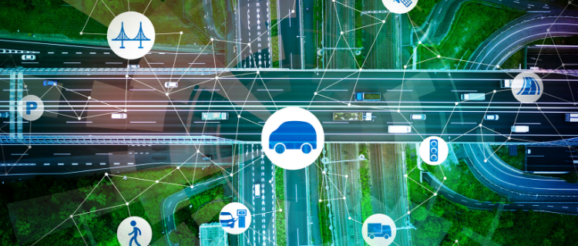How customer data is fuelling innovation in the automotive industry

In the Fourth Industrial Revolution (4IR), the lines between physical, digital and biological worlds are becoming increasingly blurred, transforming the ways we live and how all business industries operate. Added to this is the context of the current COVID-19 (coronavirus) pandemic, forcing upon entire industries a war-time urgency to innovate not just for the good of businesses but also the wellbeing of customers and communities.
The innovative technologies such as cloud, mobile, cognitive analytics, and the Internet of Things which are driving this change are also empowering customers who increasingly seek unique and value-added experiences. Huge amounts of data from products, services, manufacturing, and customers further adds to this complexity, requiring a certain amount of agility from businesses to respond and satisfy changing consumer needs.
Over recent years, we’ve already seen much of the automotive industry re-imagined – specifically in the shifting relationship between consumers and cars, and how the intelligence gained through data is transforming the customer experience. Consumers today, connected across multiple channels, have come to expect personalised, effortless, and portable experiences as the norm. And during and after this pandemic, these expectations are only going to rise; if automakers are to stay ahead of the competition, they’ll adapt fast.
The importance of ecosystems
The digital revolution has changed the way we interact with cars, moving from traditional vehicle sales to a new era of mobility services. The number of connected vehicles on roads continues to rise as automotive manufacturers commit to embedding cellular technology in future production vehicles. Indeed, by 2021 the International Data Corporation (IDC) predicts that 20% of major cities will have put in place implementations to support automated vehicles.
The development of mobility ecosystems are key to the delivery of new services, as are automotive ecosystems to enabling integrated and convenient cross-channel experiences for customers. This is why we’re seeing new options for urban mobility – including ride-sharing, car-sharing, and micro-mobility services – exploding across the globe. The huge amount of data that has become available is fuelling this innovation, helping create new businesses and, ultimately, improving the customer experience. It’s also presenting new opportunities for the automotive industry to engage with customers.
Leveraging customer profiles
As we know, buyer preferences are evolving: going beyond dealer-driven sales to digital direct, and from one-time purchases towards subscriptions. Consequently, customer demand for unique experiences and the need to innovate products at a faster pace requires constant connectivity, analytics, and improvement. A major part of delivering on these demands comes from understanding the profile of each customer. This is made possible by looking at the data available on each customer at each touch-point along their journey – from sales to service.
Aston Martin, the iconic luxury British sports car manufacturer, recognises that their customers expect a personalised experience that singles them out as individuals, and wants to embrace new ways of connecting with its customers. Using Salesforce, they create dynamic and unique content for both customers and prospects.
For instance, when a warranty expires, Aston Martin is able to use this as an opportunity to re-engage with customers by having the right insights to drive greater revenue generation and deliver richer customer experience. This is done by analysing conversations about its cars, services, and brand.
Longer-term, the company plans to capture customers’ “passion points”, such as fine wine or philanthropy, in a bid to personalise existing relationships even further. Aston Martin also plans to introduce a new customer community where people can update their own passion points, create a virtual garage for their cars, and engage with the company.
Optimising the customer journey is a win-win
Having a 360-degree view of every customer has the potential to transform future product design, the car buying experience, aftermarket service interactions, as well as the offer and delivery of additional services. The opportunities this presents to companies are huge – from developing profile-driven customer experiences to enabling Mobility-as-a-Service (MaaS) in smart cities.
Many companies are already on this journey. In the US, BMW enables mobility-as-a-service via ReachNow car-sharing app, offering users the option to rent its vehicles by the minute or for multiple days; also putting it in direct competition with Uber and Lyft. Meanwhile marques like Volkswagen have made strong headway dominating the fleets of car sharing services like Zipcar.
As the technologies of the 4IR continue to transform the automotive industry, increasingly leaders are recognising that it takes an ecosystem of suppliers, dealers, fleet operators, and customers themselves to deliver the best customer experience possible. Where huge amounts of data used to overwhelm businesses, today they’re using it to their advantage, getting to know their customer better, and keeping ahead of the competition.
By Adam Spearing, EMEA Field CTO, Salesforce
